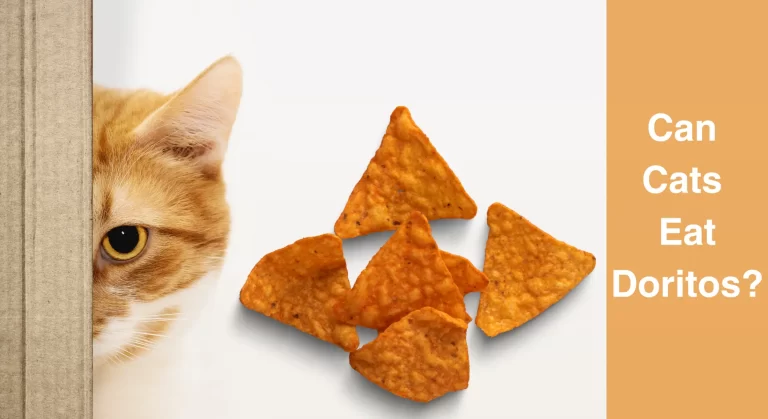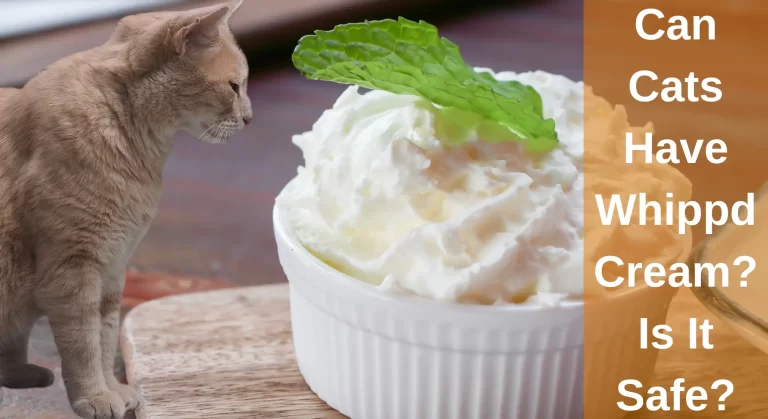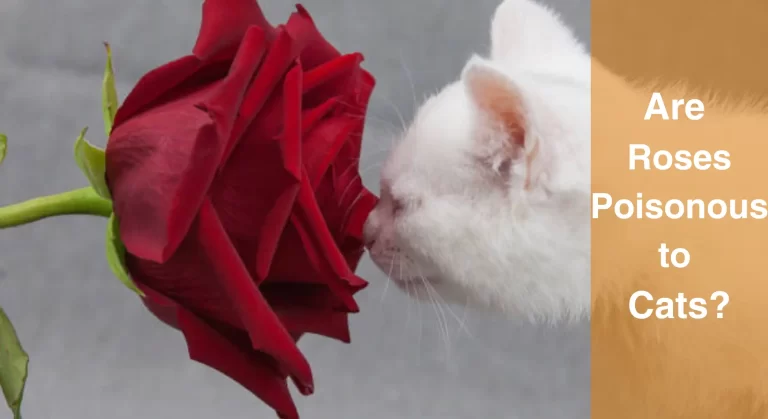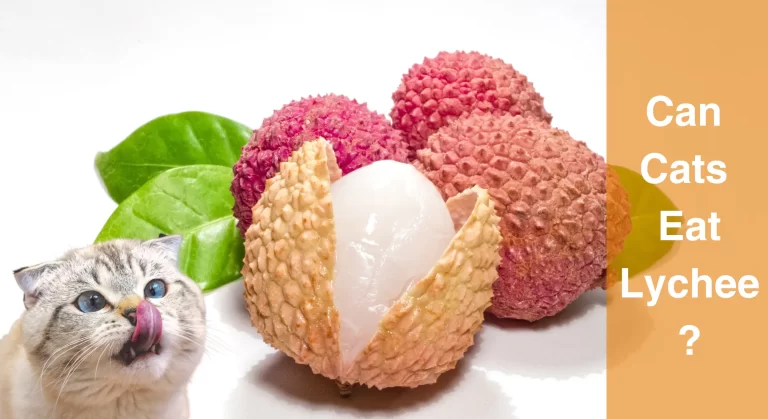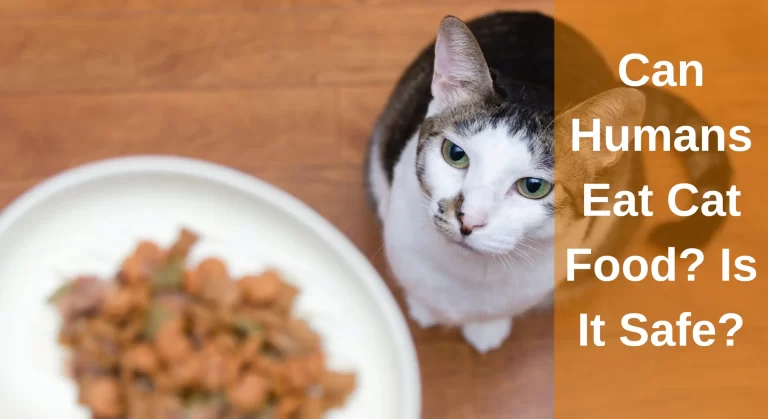Can Cats Eat Oysters? What You Need to Know
Cats are unpredictable. Some cats enjoy observing each bite we take when we consume with huge eyes which implore us to exchange. Some cats don’t give a damn what you’re consuming and will reject everything you put in front of them. There’s a possibility that your cat would ask for oysters if it’s watching you eat them. If your cat enjoys sharing, you may be thinking if you can give him some oysters. Is it safe? “Can Cats Eat Oysters”?
No, You mustn’t give your cat raw oysters. Oysters that aren’t cooked contain bacteria that can harm the gastrointestinal tract. Tinned, smoked, and grilled oysters could be served like a rare delicacy unless it doesn’t contain excess oil, sodium, or other flavourings. Although oysters include nutrients, minerals, and proteins, they also pose a lot of hazards.
Oysters don’t belong among the food types that should be consumed by your cat. Continue reading to learn more about the negative effects oysters may have on your cats’ gastrointestinal tract. In this article, we’ll also examine if feeding cats smoked or tinned oysters is a good idea, and if not, what other seafood we can provide cats.
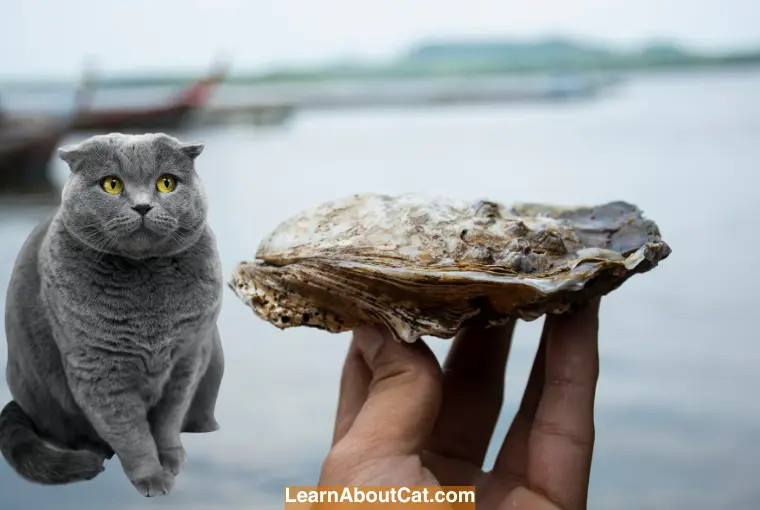
What are Oysters?
Whether cats can have oysters, it’s important to start with the basics: what exactly are oysters? Oysters are bivalve mollusks with irregular shells that are found in both saltwater and freshwater environments. They are often considered a delicacy in many cultures and are used in a variety of dishes, from raw oysters on the half-shell to oyster stews and soups.
One of the most unique things about oysters is the way they filter water. Oysters are filter feeders, which means they draw in water through their gills and filter out tiny organisms like plankton and algae. This process not only helps to clean the water but also gives oysters their distinctive flavour.
Oysters come in many different shapes, sizes, and varieties. Some of the most common types of oysters include:
- Pacific oysters: These oysters are native to the Pacific coast of North America and are often grown on farms.
- Eastern oysters: These oysters are found along the Atlantic coast of North America and are often eaten raw.
- Kumamoto oysters: These oysters are smaller and sweeter than other varieties and are often served raw.
Oysters are a unique and fascinating type of seafood that has been enjoyed by humans for centuries.
Can Cats Have Oysters?
It is generally not recommended to feed any oysters to cats. While oysters can provide some nutritional benefits such as protein, vitamins, and minerals, they also contain high levels of sodium and zinc which can be harmful to cats.
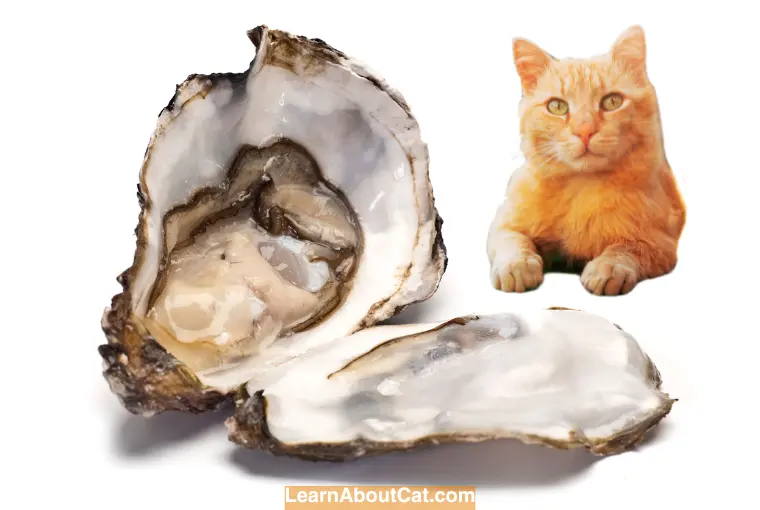
Additionally, some cats may be allergic to seafood, including oysters, which can lead to digestive issues or other health problems.
Moreover, cats should not be fed raw oysters because they may include bacteria and enzymes that can disturb the digestive system of your cat, a situation that you don’t want to happen to your furry companion. Cats shouldn’t be fed seafood every day because it is harmful and can have negative effects.
Check Out: Can Cats Eat Goldfish Crackers?
Can Cats Eat Cooked Oysters?
While cooked oysters may be less likely to cause harm to cats compared to raw oysters, it is still not recommended to feed them to cats.
Cooked oysters can still contain high levels of sodium and zinc, which can be harmful to cats with certain health conditions.
Can Cats Have Smoked Oysters?
Similar to cooked or raw oysters, it is not recommended to feed smoked oysters to cats. When oysters are smoked they are first cooked in steam and then smoked before packing.
The oysters get a taste by being smoked. Smoked oysters are somewhat less dangerous as compared to uncooked oysters since the thiamine enzyme will be destroyed during cooking.
However, you can’t give your feline smoked oysters. In addition to the additional components which render smoked oysters so tasty, they are frequently tinned in oil, sodium, and seasonings., Smoked oysters are highly detrimental to your cat regardless they taste so good.
Cats with certain health conditions, such as obesity or pancreatitis, may be especially sensitive to the fat content in smoked oysters.
Also, Check Out: Can Cats Eat Human Food? List of Human Foods That Cats Can and Cannot Eat
Can Cats Eat Canned Oysters?
Feeding canned oysters to cats is not recommended. Smoked oysters and tinned oysters are almost the same. But the canned oysters are cooked and aren’t smoked. The addition of extra components like oils, sodium, and flavoring will vary on the way the oysters are tinned.
You might occasionally give your cat tinned oysters which are stored in water, without a significant amount of salt added, and contains no additional spices. But, it’s crucial to avoid feeding your cat excessively at once.
Oysters contain enzymes that affect felines differently and can occasionally be lethal to them, thus they mustn’t consume them. Thiamine in felines is destroyed by oyster enzymes that cause food poisoning and digestive system issues.
Find Out: Can Cats Eat Canola Oil? Does It Benefit Cats
Why are Oysters Bad for Cats?
Oysters may be harmful to cats for a variety of causes, including a few listed below:
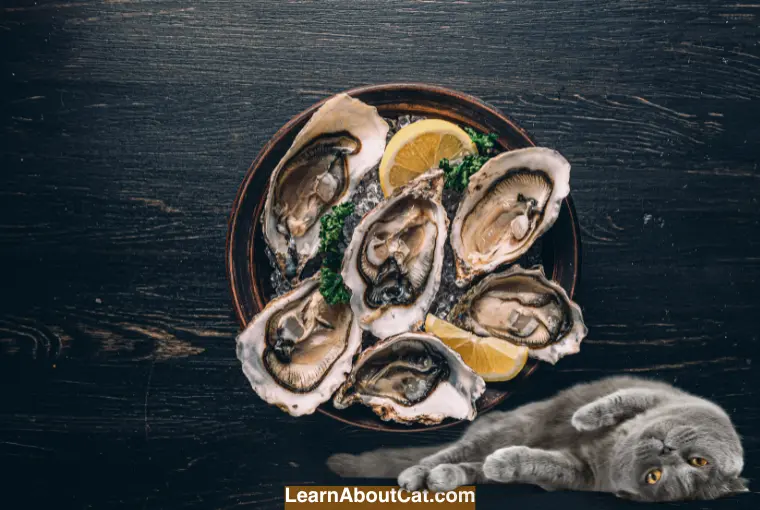
Enzymes Destruction
The most important health impact is the sort of enzyme that oysters have. Thiamine, which is necessary for living and is abundant in your little cat’s body, is degraded by enzymes.
Cats can retain their equilibrium thanks to Vitamin B1 thiamine. Thiamine-deficient oysters may make cats to have seizures, brain damage, and cognitive issues. In this case, even a small amount can be harmful to your cat.
Food Poisoning
Bacteria found in oysters pose a threat to both cats and humans. Vibrio vulnificus is a bacterium found in uncooked oysters that, if not cured, can cause gastrointestinal problems, serious illness, and even death in cats. If neglected, this pathogen can make cats have fatal diarrhoea.
Also Read: Why Is My Cat Throwing Up Undigested Food?
What Happens if a Cat Eats an Oyster?
As previously mentioned, a cat’s body is just not designed to absorb the large number of enzymes found in oysters. It’s quite risky to give your cat oysters because it could endanger its life. Here are some risks that you may face if your cat eats oysters:
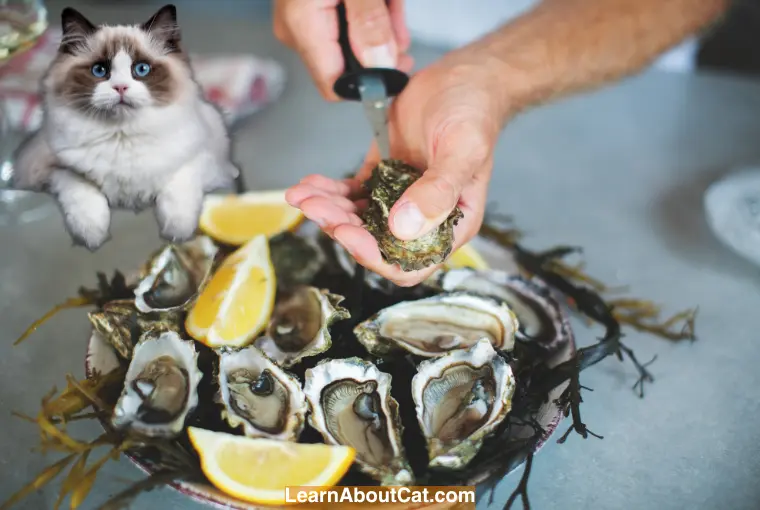
1. Thiamine Destruction
The thiamine in a feline’s body is destroyed by the oyster enzymes. Cats require thiamine for normal body functioning.
Weakness, decreased appetite, stomach pain, weight loss, brain abnormalities, convulsions, or paralysis can occur in cats when their thiamine levels are low. Your cat might even pass away if they consume too many oysters.
2. Allergies
Humans are reported to develop food sensitivities after eating oysters. Cats might experience the same thing. Cats frequently experience food allergies because of their delicate digestive systems. Cats with food intolerances also experience skin problems.
The following are a few of the very common signs of food intolerance in cats:
- Dysentery
- Nausea.
- Swollen eyes
- Snoring, gasping, coughing, and sniffing
- Enlarged paws.
- Irritation of the skin
- Abnormal fart
Harmful bacteria
Moreover, raw oysters may contain harmful bacteria, which can harm both humans and felines by causing gastrointestinal and stomach problems.
Your cat may have diarrhoea, puking, nausea, or even exhaustion when suffering from an intestinal bacterial illness. For cats, hypothermia could be fatal and cause death.
What to Do If Your Cat Ate Oysters?
You must first speak with your veterinarian before attempting a home treatment to resolve the problem. Inform him of the entire scenario in detail, and then take the appropriate actions he suggests. Schedule a visit with the vet right away if you’re having trouble taking care of your cat’s needs right now or if your feline’s condition is declining.
It is advised to use prescribed medication to manage the current problem and give your cat comfort. It would be beneficial if you give your cat a fibre-rich diet if it is experiencing gastrointestinal discomfort due to gastritis or another condition. It will assist your cat in eliminating everything that’s bothering it within.
You must pay close attention to the signals if your cat is having discomfort of any sort to address the situation. Provide your tiny cat food high in thiamine if the symptoms point to thiamine insufficiency to prevent additional harm. Pure water supply or feeding your pet food with a high water level will help if they become dehydrated.
Remember that none of these treatments will eliminate the source of your cats’ discomfort. You may only be able to relieve some of your cat’s suffering with the help of these remedies. You must follow the therapeutic advice given by your veterinarian to make your cat healthy.
What Seafood Can Cats Eat?
So, we’ve learned that cats shouldn’t and can’t eat oysters as a staple in their diets. You might be thinking now can cats eat other types of seafood? Here I’ve mentioned some seafood that cats can consume safely in moderation:
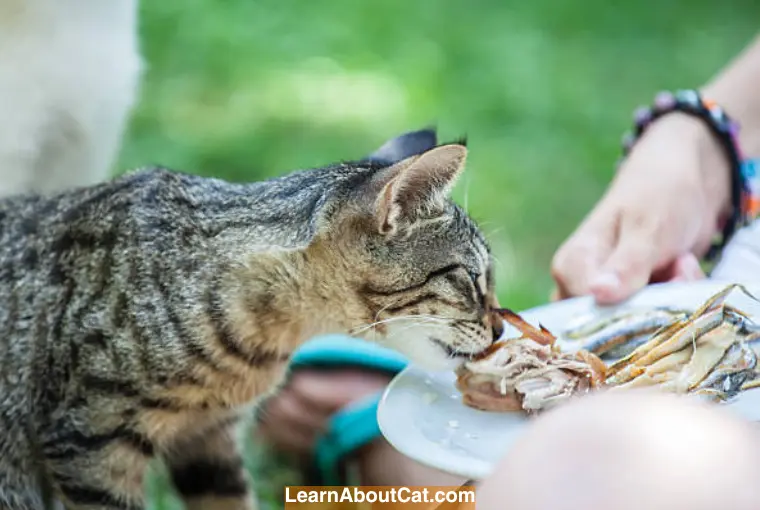
Mussels
Bivalve clams like mussels provide cats with essential lipids, nutrition, and protein. If you want to, you can sometimes give your feline mussels.
But you can’t feed them mussels regularly, as they contain a lot of thiamine, which can lead to long-term health problems in cats and a lot of sodium, that’s not good for cats.
Clams
Cats can eat clams, though in very little quantities, and ideally from trustworthy sources. Its high salt content might be harmful if given in excess, and if ingested in large quantities, it could damage the renal and liver systems.
Scallops
Although scallops have a shell, it is simple to detach it. They can be quickly prepared by roasting, cooking, poaching, deep-frying, or barbecuing. As scallops are generally rather nutritious, cats could eat them. There are plenty of vitamins, protein, mineral deposits, and necessary fats.
But, you must avoid feeding raw scallops because the thiamine will cause medical problems and may disturb your cats’ gut.
Thus, if you’re planning on feeding your cat scallops, keep the portion size to a minimum, avoid making it a daily habit, and limit the number of times you feed your cat scallops.
Lobsters
The most secure type of seafood for your felines to eat is probably lobster. If your cat isn’t allergic to seafood, you can usually give him a few cleaned lobsters in modest doses.
However, they mustn’t include extra ingredients, such as garlic or dairy products. As a result, keep the portions small and save them for special occasions.
Fish
The best fish to give your cat is freshwater-packed canned fish. Good choices include tinned tuna and oily fish. Be warned that the number of heavy metals in tinned tuna might be considerable. Also, oily fishes are extremely fatty and packed with additional calories.
The fish must be boneless, so check! Your cat could choke or become suffocated if a small fish’s spine gets stuck in its throat. If the bone doesn’t stick in the cat’s esophagus, it may enter the gastrointestinal system and obstruct passageways or harm inner organs.
Prawns
Cats can safely eat prawn that has been thoroughly cooked. Before feeding the prawn to your cat, cut off the head, shells, and fin. Don’t feed prawns that have been battered, fried in oil, or spiced to your cat. Don’t give raw prawns to your cat.
You mustn’t offer your cat prawn in excess at once because it contains a lot of salt and fat. A standard-size cat can consume almost half of a big shrimp at once.
Crab
Cats can safely eat roasted crab that hasn’t been seasoned or fried in oil. Before serving your cat the crab, wash it out of the shell, and give it a quick steam.
Avoid feeding uncooked crab to your cat since it may include germs or insects that might harm your cat. Avoid feeding your cat crab shells because they could injure his mouth, become stuck in his esophagus, or clog up his intestinal tract.
You might be surprised to find that cats can safely consume imitation crab. Since the imitation crab has already been prepared, you aren’t required to bake it before feeding it to your cat.
Frequently Asked Questions
Can cats eat oyster sauce?
The oyster sauce must not be given to cats since it has additional potent substances and chemicals that might upset their digestive tracts and cause nausea and diarrhea.
Can cats eat oysters in sunflower oil?
Cats can consume oysters in moderation that have been tinned in sunflower oil without causing any harmful effects. But, your cat can become ill if it consumes a lot of them. It is acceptable to offer your cat just a few bits of oysters in sunflower oil on special occasions if you’re sure that your feline isn’t allergic to oysters.
Can a cat die from eating oysters?
Yes, cats may pass away from consuming oysters because they contain germs and other toxins which can make them very ill and finally kill them. If you give your cat uncooked oysters, it may catch pests because.
Also, it’s important to note that the majority of cats possess seafood intolerance. Your cat is likely to exhibit significant allergy symptoms, and if the symptoms disappear, your cat could become quite unwell and may die.
Do cats like oysters?
Cats like oysters because they may discover the flavour and texture to be appealing.
Final Words
We may conclude that oysters aren’t healthy for cats to consume in any situation by closely examining the advantages and hazards of cats consuming oysters. Even a tiny quantity of oysters can seriously damage a cat’s physique. Hence, if you have a cat, we don’t advise feeding it any oysters.
However, you can give your adorable cat a piece of oyster if you fail to resist its pleading, though. But first, keep in mind you offer your cat a fried oyster, not an uncooked one. Also, you need to be sure that the oysters you’re giving your feline are from clean water.
You must feed your cat nutritious food to make up for any medical harm that might have been done to its healthy body. Also, if your cat likes seafood, plenty of healthy options are available, such as crabs, salmon, tuna, etc. to satisfy your cat’s palate.
Related Posts:
Who is Isabella?
My name is Isabella, and I am a dedicated and knowledgeable cat enthusiast. With years of experience caring for cats and a deep love for felines, I made a mission to help other cat lovers navigate the challenges of cat ownership.

